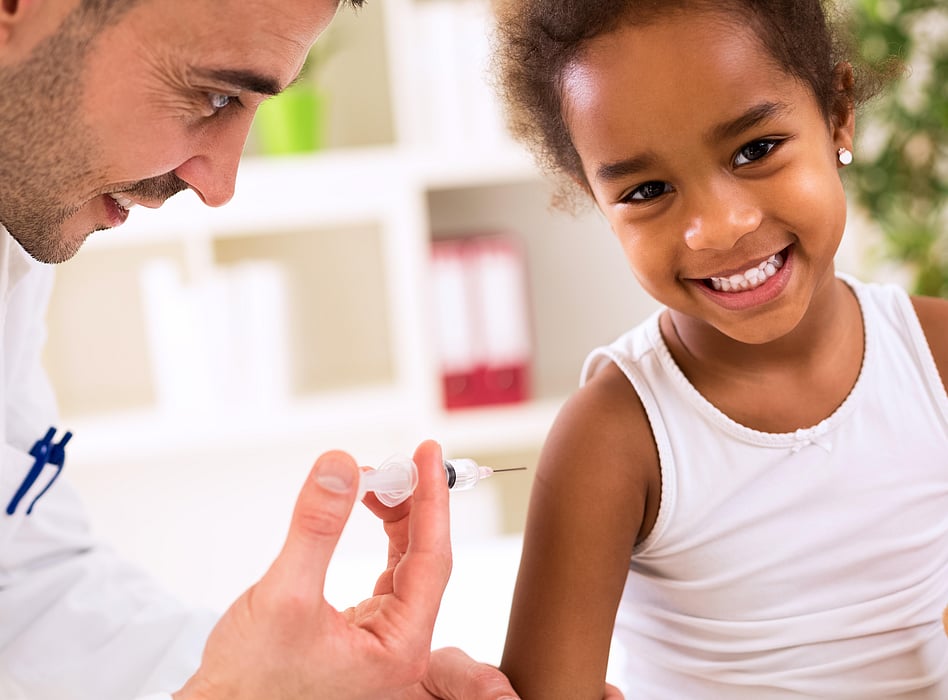17.2 Percent of Children Start but Do Not Complete Seven-Vaccine Series

TUESDAY, July 25, 2023 (HealthDay News) -- Overall, 17.2 percent of children initiated, but did not complete, the combined seven-vaccine early childhood series, according to a study published online July 25 in Pediatrics.
Sarah Y. Michels, M.P.H., from Yale School of Public Health in New Haven, Connecticut, and colleagues examined factors associated with starting but not completing multidose vaccine series using data from the 2019 National Immunization Survey Child. A total of 16,365 children aged 19 to 35 months were classified as completing the combined seven-vaccine series; not initiating one or more of the seven-vaccine series; or initiating all series but not completing one or more multidose series (72.9, 9.9, and 17.2 percent, respectively).
The researchers found that to complete the combined seven-vaccine series, about 8.4 percent of children needed only one additional vaccine dose from one of the five multidose series. The associations with starting but not completing multidose vaccine series were strongest for moving across state lines (adjusted prevalence ratio [aPR], 1.45), number of children in the household (aPRs, 1.29 and 1.68 for two to three and four or more, respectively), and lack of insurance coverage (aPR, 2.03).
"If children who were missing only one outstanding dose from a multidose vaccine series had received that final dose, the United States would have achieved the Healthy People 2020 goal of 80 percent coverage for combined seven-vaccine series completion in 2019," the authors write.
Abstract/Full Text (subscription or payment may be required)
Related Posts
Vaping Could Up Teens’ Odds for Marijuana Use, Binge Drinking
THURSDAY, May 18, 2023 (HealthDay News) -- Teens who use electronic cigarettes...
CDC Backs Boosters for High-Risk Kids Aged 5-11, Shorter Time Between Shots
TUESDAY, Jan. 4, 2022 (HealthDay News) -- The U.S. Centers for Disease Control...
Melatonin for Kids: Is it Safe? How to Help School Children Get Good Sleep
SATURDAY, Sept. 9, 2023 (HealthDay News) – Lots of parents are giving their...
La ciencia revela 3 claves para un día con energía y alerta
MARTES, 6 de noviembre de 2022 (HealthDay News) -- Los anuncios nos hacen creer...
